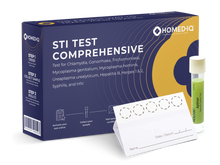Gastrointestinal infection: tips for prevention and treatment
A gastrointestinal infection, also commonly known as a stomach flu, is a frequent condition that affects the digestive tract. It can be triggered by various factors, including viruses. In most cases, a gastrointestinal infection resolves on its own, but it can pose problems for certain risk groups such as older adults or children. The symptoms can be quite non-specific, which is why it is important to rule out other conditions.
Table of Contents
- What is a gastrointestinal infection?
- What are the symptoms of a gastrointestinal infection?
- Which conditions should be ruled out when diagnosing a gastrointestinal infection?
- What causes a gastrointestinal infection?
- How long does a gastrointestinal infection last?
- How to prevent a gastrointestinal infection
- How is a gastrointestinal infection treated?
- Summary
What is a gastrointestinal infection?
Gastrointestinal infections affect the stomach and intestines and are often caused by viruses, bacteria, or parasites. They can trigger very unpleasant symptoms. Most people experience at least one gastrointestinal infection during their lifetime, and it can occur at any age (Satter & Singh, 2023).
What are the symptoms of a gastrointestinal infection?
A wide range of symptoms may occur during a gastrointestinal infection. The first signs are often non-specific but frequently appear as:
- Nausea
- Vomiting
- Diarrhea
- Abdominal pain and/or lower abdominal cramps
As the day progresses, so-called “systemic symptoms” that affect the rest of the body may also appear. These include fever, chills, and body aches. Symptoms can come on suddenly and develop over several hours or days (NHS, 2023).
Want to check your health yourself?
During a gastrointestinal infection, adequate nutrient intake is crucial. Since the digestive tract may be impaired and nutrient absorption reduced, the immune system can also be weakened. With vitamin deficiency tests or magnesium tests from Homed-IQ, you can quickly and conveniently check your health status at home. These tests reveal whether you are deficient in important nutrients that could be affecting your recovery.
Which conditions should be ruled out when diagnosing a gastrointestinal infection?
Gastrointestinal infections can cause symptoms similar to those of other illnesses. It is important to rule out other possible causes for your symptoms. Some conditions that need to be distinguished from gastrointestinal infections include:
- Gastritis: Also referred to as inflammation of the stomach lining, gastritis can cause symptoms like abdominal pain, nausea, and vomiting—similar to those of a gastrointestinal infection. Gastritis is often caused by the bacterium Helicobacter pylori, which, unlike other bacterial pathogens, does not typically cause classic gastrointestinal infections. Other common causes include stress, alcohol abuse, or the use of anti-inflammatory medications (Cleveland Clinic, 2023).
- Food poisoning: Usually caused by eating contaminated or spoiled food. Symptoms resemble those of a gastrointestinal infection but often appear more quickly and are typically linked to a specific meal or food source (NHS, 2021).
- Irritable bowel syndrome (IBS): Unlike gastrointestinal infections, IBS is a functional bowel disorder. Chronic abdominal pain, diarrhea, or constipation can occur, and the causes are often linked to stress or certain foods rather than an infection (Mayo Clinic, 2023).
If you have persistent or severe symptoms, you should consult a doctor to determine the exact cause of your complaints and receive appropriate treatment.
What causes a gastrointestinal infection?
Gastrointestinal infections are usually caused by various pathogens that enter the digestive tract and trigger inflammation. The most common causes of gastrointestinal infections include:
Viruses
Viral infections are among the most common causes of gastrointestinal infections. These include:
- Norovirus: Symptoms include diarrhea, vomiting, nausea, and stomach cramps. People in communal settings, older adults, children, and individuals with weakened immune systems are particularly at risk. Transmission occurs through contaminated food, water, surfaces, and direct contact with infected individuals. Currently, there is no vaccine available against norovirus (Cleveland Clinic, 2023).
- Rotavirus: This virus primarily causes symptoms in children. Transmission occurs mainly via the fecal-oral route, often in daycare settings. There is an effective vaccine against rotavirus (Cleveland Clinic, 2023).
Bacteria
Certain bacteria can also cause gastrointestinal infections. The most common include:
- Salmonella: Often transmitted through contaminated meat, eggs, and dairy products.
- Escherichia coli (E. coli): Certain strains cause gastrointestinal infections through contaminated food or water.
- Campylobacter: Most commonly transmitted through undercooked poultry or contaminated water.
- Shigella: Typically spread through direct contact with infected individuals or contaminated food and water.
Source: Satter & Singh, 2023
Parasites
Parasitic infections are more common in areas with poor water quality and inadequate sanitation. These parasites often enter the digestive tract through contact with contaminated water or food. Examples include Giardia lamblia and Entamoeba histolytica (Cherney, 2022).
The spread of gastrointestinal infections can be promoted by poor hygiene, inadequate food or water quality, and contact with infected individuals. For this reason, preventive measures should be taken to minimize the risk of infection.
How long does a gastrointestinal infection last?
The duration of a gastrointestinal infection can vary depending on the cause and the general health of the affected person. In general, most viral gastrointestinal infections—such as those caused by norovirus or rotavirus—last about 1 to 3 days. Bacterial infections, such as those caused by salmonella, E. coli, or campylobacter, may last somewhat longer—often between 5 and 7 days. However, some infections may persist longer, especially if complications occur or if the affected person has a weakened immune system.
If symptoms persist or are severe, it is important to seek medical attention. Early diagnosis and treatment, particularly in the case of bacterial infections, can help shorten the course of illness and prevent complications.
How to prevent a gastrointestinal infection?
- Hand hygiene: Wash your hands thoroughly and regularly with soap and water.
- Food hygiene: Wash fruits and vegetables, cook food thoroughly, and store it properly.
- Safe drinking water: Drink only clean, safe water to avoid contamination.
- Vaccinations: Get vaccinated against rotavirus and other preventable infections when recommended.
- Avoid contact with infected individuals: Minimize close contact with people who show symptoms of gastrointestinal illness.
Source: NHS, 2023; John Hopkins, 2024
Additionally, regular cleaning and disinfection of frequently touched surfaces is an important measure to prevent gastrointestinal infections. This includes doorknobs, light switches, mobile phones, and other commonly used objects. Such hygiene practices can effectively control pathogens and reduce the spread of infections.
How is a gastrointestinal infection treated?
Treatment for gastrointestinal infections generally focuses on relieving symptoms and preventing complications. Here are some important steps that can help in managing a gastrointestinal infection:
- Hydration: In cases of symptoms such as diarrhea and vomiting, it is crucial to replenish lost fluids by drinking water, electrolyte drinks, broth, or diluted fruit juices.
- Diet: Avoid solid foods while experiencing acute vomiting and diarrhea. Start with clear fluids such as water and broth to prevent dehydration. As symptoms improve, gradually introduce easily digestible foods such as rice, dry toast, bananas, and grated apple. Avoid spicy and fatty foods, as well as caffeine and alcohol, as they can worsen symptoms.
- Rest: Give your body time to rest and recover. It is advisable to stay home for at least 48 hours after symptoms have subsided to avoid infecting others.
Source: John Hopkins, 2024
When should you see a doctor?
There are certain situations in which you should definitely consult a doctor. These include severe symptoms such as persistent vomiting, bloody diarrhea, high fever, or significant fluid loss. People in high-risk groups—including children, older adults, pregnant women, and individuals with weakened immune systems—should be especially cautious (NHS, 2023).
Summary
Gastrointestinal infections are common, but in most cases not serious. By understanding the symptoms, causes, and prevention methods, you can protect yourself and your family from infection. However, if you notice severe symptoms or belong to a high-risk group, you should seek medical attention immediately.









